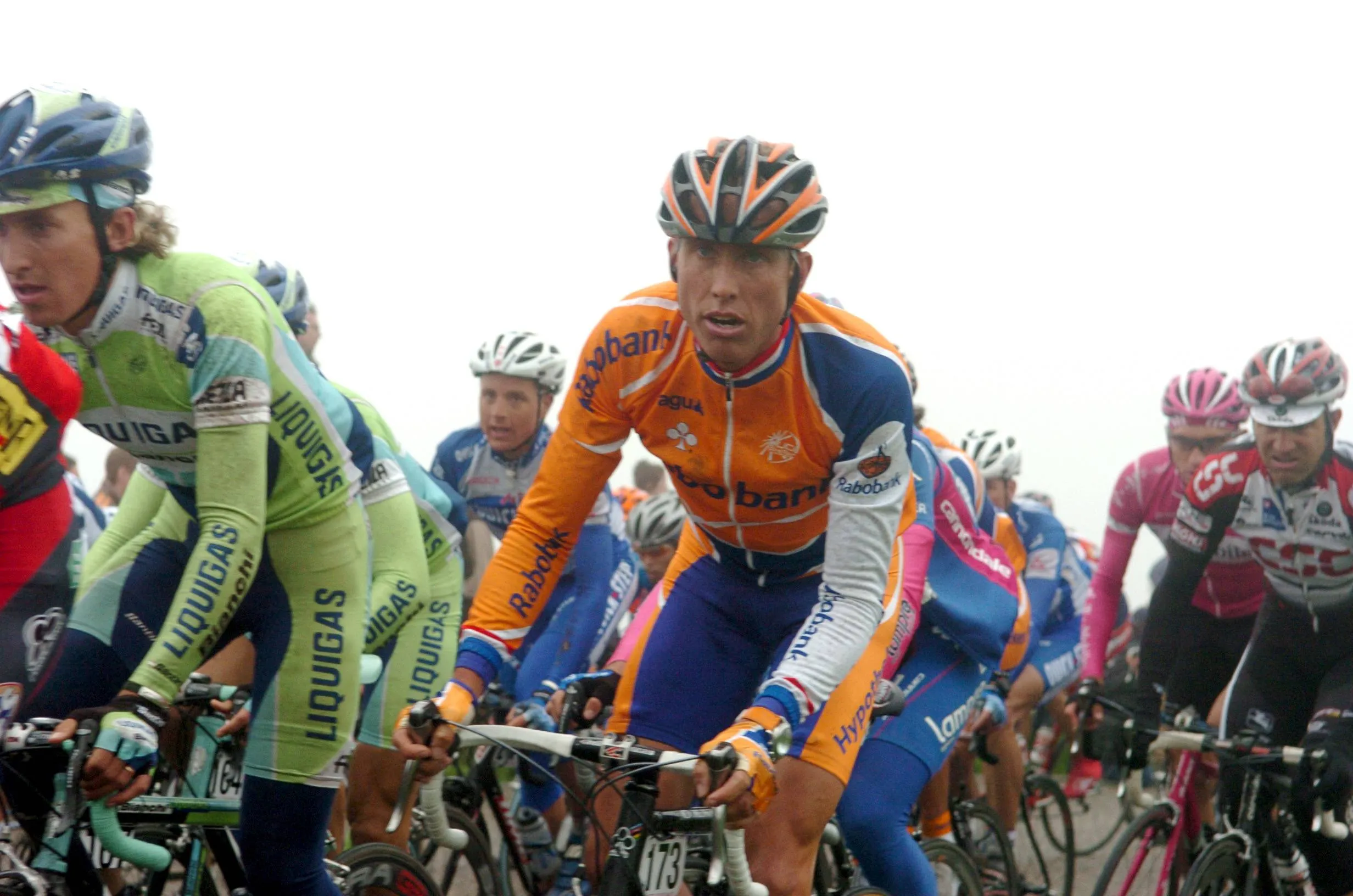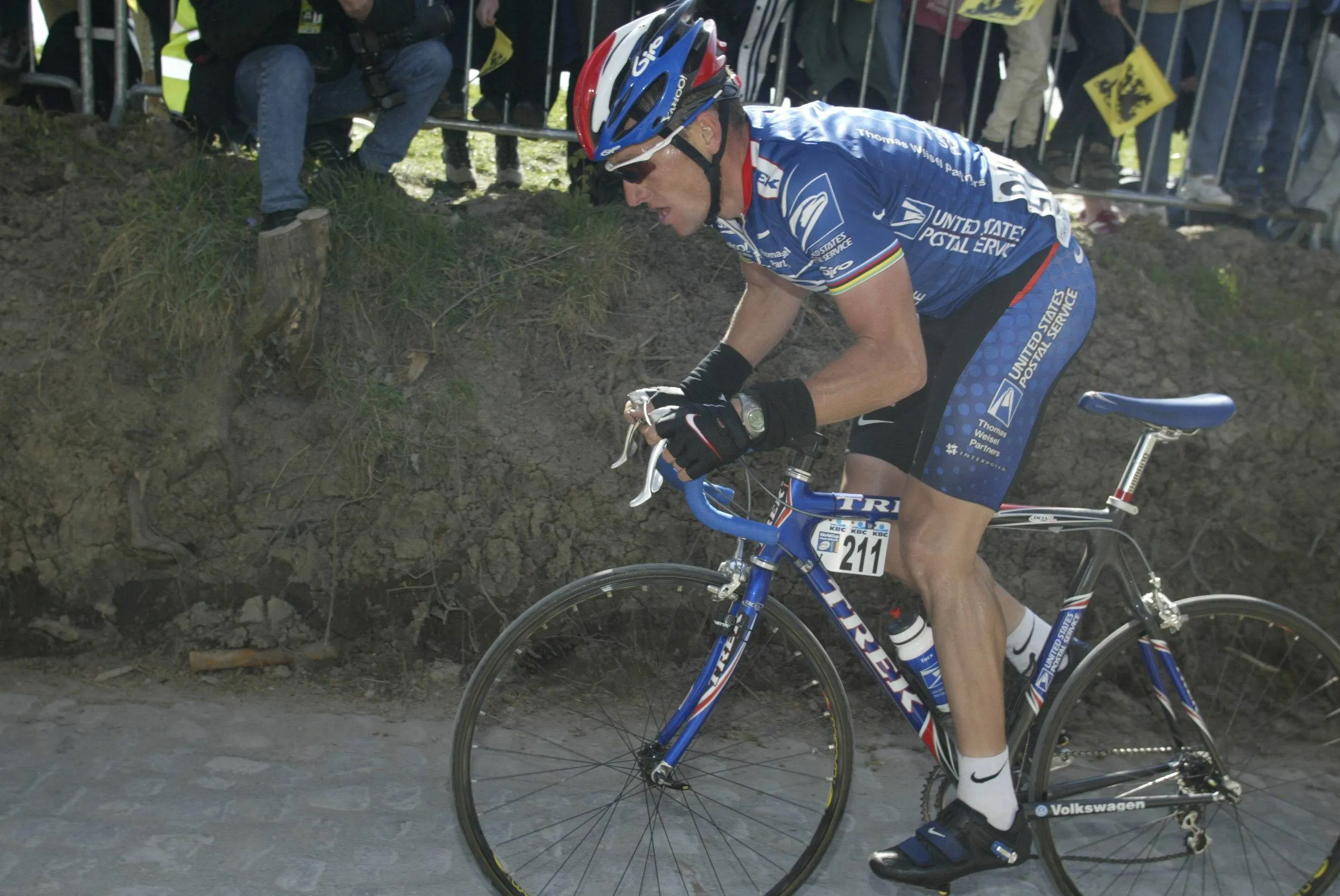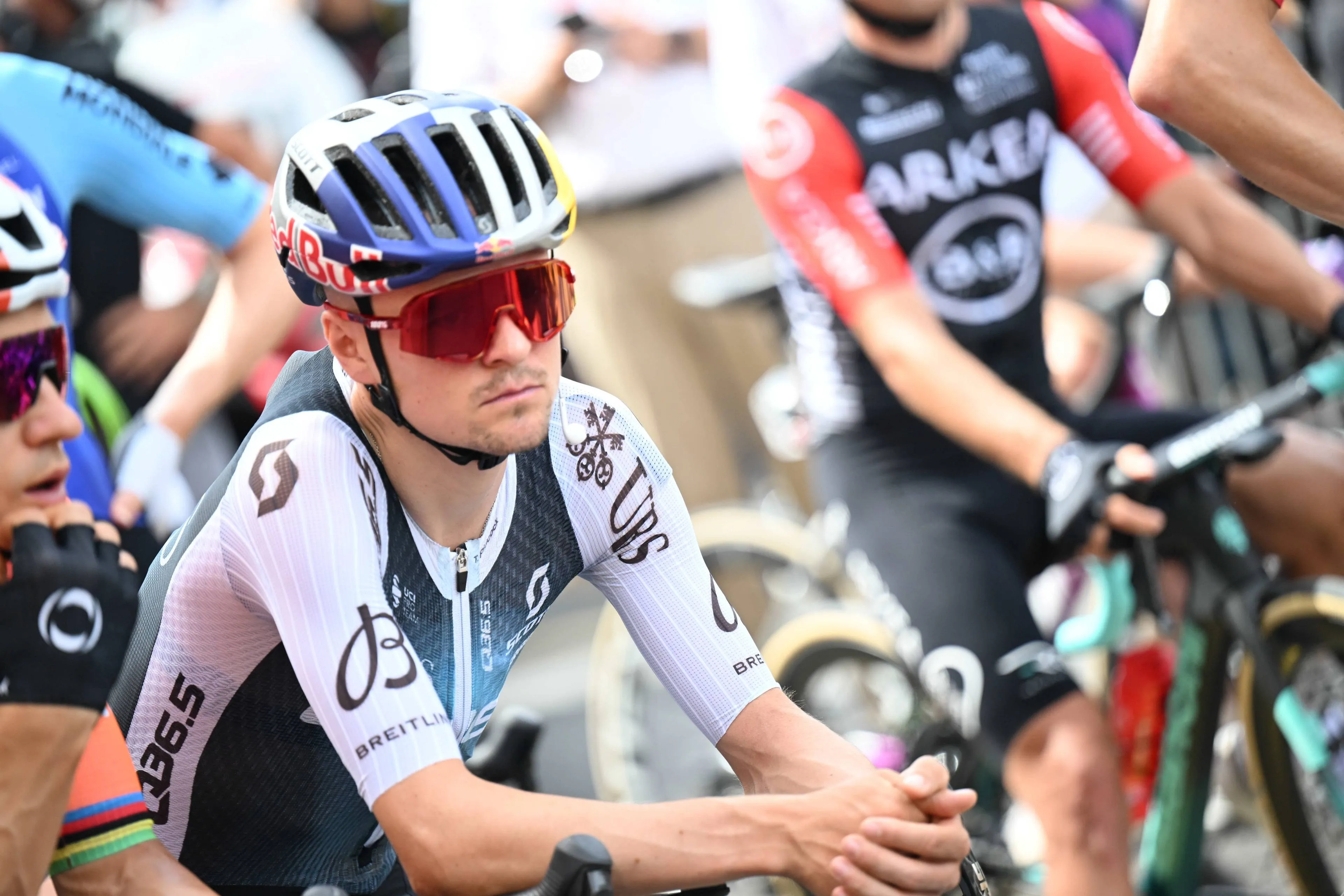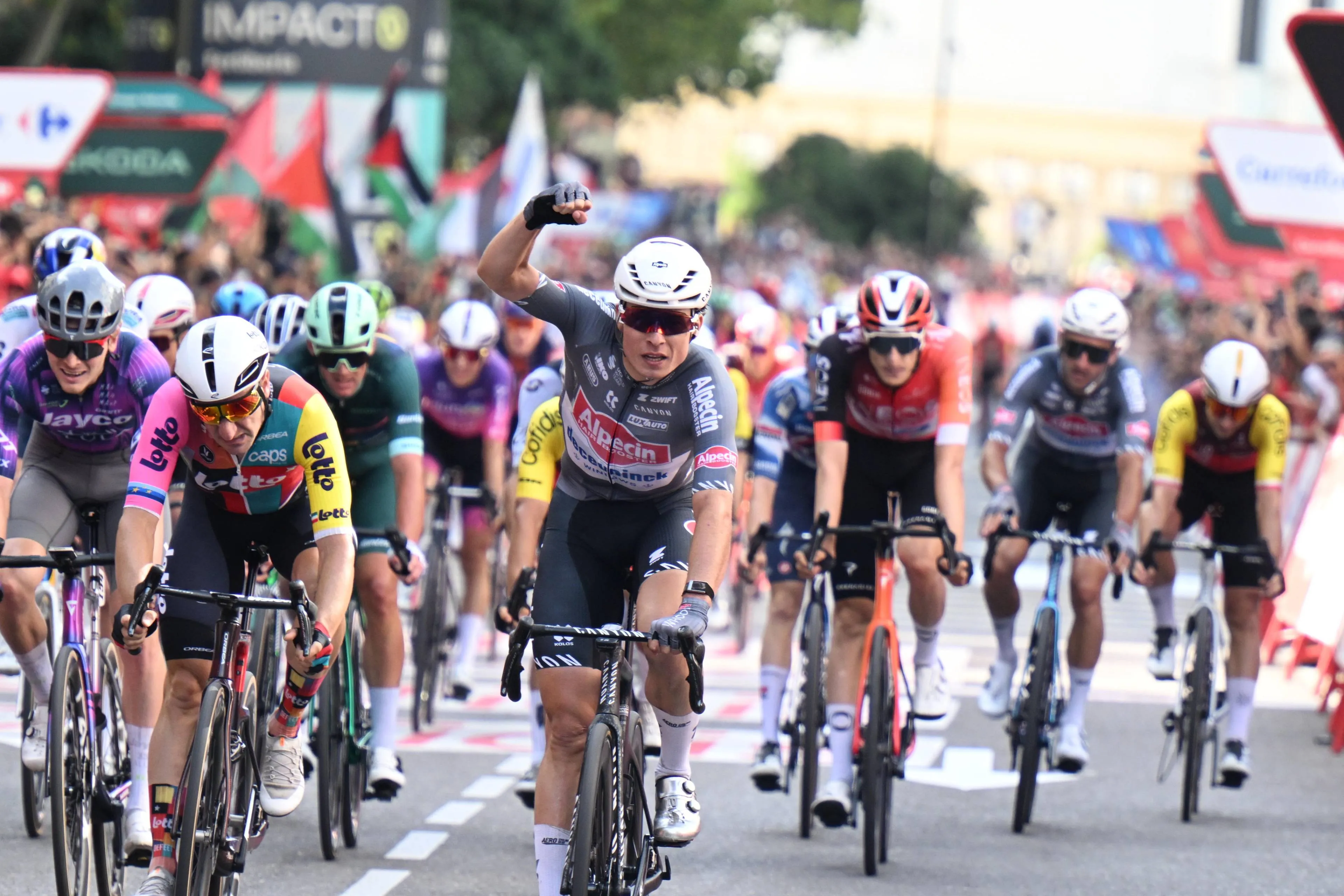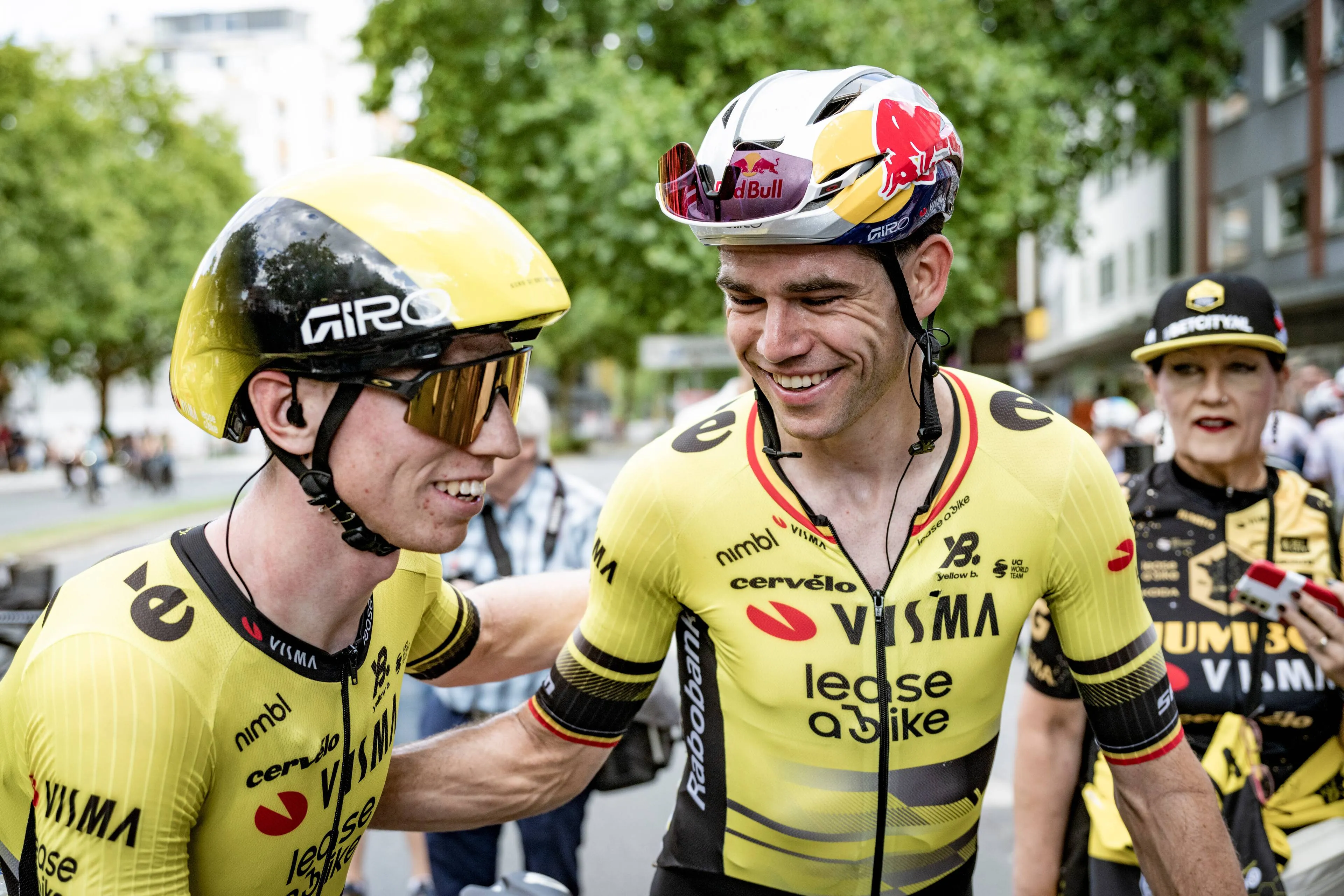“If they really wanted to clean up the sport, they should have stayed and done something” - Michael Rasmussen speaks on Rabobank's return 18yrs after his own doping scandal
CyclingTuesday, 04 March 2025 at 10:30

After more than a decade away, iconic sponsor Rabobank are set to return to the pro cycling peloton later this year, having come to an agreement to sponsor Team Visma | Lease a Bike. One of the riders most synonymous with Rabobank's past spell in the sport, is Michael Rasmussen, who's 2007 doping scandal ultimately caused the sponsor to step back in the first place.
At the 2007 Tour de France, Rasmussen looked poised to win a sensational Maillot Jaune, the first in the team's history. That's when things went wrong though, as the Dane was sensationally sent packing from the biggest race on the planet, just days from Paris amidst doping controversy. With this tainting the reputation of the Rabobank team, and the ultimate doping scandal of Lance Armstrong following soon after, Rabobank quickly looked to avoid any further blows to their own image, removing themselves from the sport completely at the end of the 2012 season.
As mentioned though, now nearly 20 years on from the Rasmussen scandal, Rabobank are set to return to the sport with Team Visma | Lease a Bike. “It’s a no brainer. They should never have left the sport," Rasmussen himself says of the return in conversation with Road.cc. "Cycling is such a great marketing tool, and in the Netherlands, cycling and Rabobank are so closely connected, so it makes so much sense.”
“They’re running a really good programme at Visma, and they’re a big bank, they have a lot of money to spend," he continues. "Rabobank have been sponsoring national and Olympic teams, and cycling is such a big deal in the Netherlands, so it makes a lot of sense for them to re-enter now. And being a Dutch bank, they’ve got the opportunity to sponsor what is essentially a national team, like Visma is.”
Read also
Although he welcomes their return, Rasmussen is keen to stress that Rabobank should never have left the peloton in the first place. “If they really wanted to clean up the sport, they should have stayed and done something about it,” he insists firmly. “2012 wasn’t a surprise. They certainly knew what was going on, there are intelligent people sitting in that bank. And they were there when all the big scandals happened – Festina, Operación Puerto, you name them, they were there all along."
"And nevertheless, they still had one of the best teams in the world competing with all these people involved in these scandals. Of course they knew what was going on," adds the Dane. "They were extremely hypocritical at that point, but in 2012, they probably felt like they were forced to abandon the sport, not because they wanted to.”
The fact that sport of pro cycling now presents a much cleaner image to the outside world, could ultimately be what assured Rabobank it was now safe to return Rasmussen believes. “It seems that the sport has changed a lot for sure, the riders now don’t have to face the same choices we had to make 15, 20 years ago. As far as we know, the big doping scandals are now few and far between,” the 50-year-old assesses. “At any period in cycling, riders just adapt to whatever conditions are going on around them. Back in the day, it’s not like we were doing things that other teams weren’t doing. And it’s the same thing nowadays. You know, people really compete under the same terms at any given time in in cycling. We just did the same as every other single team out there. Everybody adapts to whatever reality they are faced with, and I think Visma are doing that now.”
“It will be different now, because in the old system, Rabobank owned the team,” Rasmussen concludes. “They weren’t a sponsor in the traditional sense, where a manager owns the team and secures a sponsor, they were the owners. So, they could fire a team manager with a click of the fingers, in five seconds. Had the structure of the team been different, I’m sure the team would have acted differently back in the 1990s and 2000s. But now, they’re just a co-sponsor, so if they want to pull out this time, they can do it without closing the team. If they really wanted to own a cycling team, they could just do it.”
Read also
Growing together, to help others grow. 🧡
— Team Visma | Lease a Bike (@vismaleaseabike) February 27, 2025
𝘚𝘢𝘮𝘦𝘯 𝘨𝘳𝘰𝘦𝘪𝘦𝘯𝘥, 𝘰𝘮 𝘢𝘯𝘥𝘦𝘳𝘦𝘯 𝘵𝘦 𝘭𝘢𝘵𝘦𝘯 𝘨𝘳𝘰𝘦𝘪𝘦𝘯. 🧡
We are proud to announce that, as of July 1, 2025, @Rabobank will officially become a partner of Team Visma | Lease a Bike. Read more:… pic.twitter.com/hWekNTSojP
claps 1visitors 1
Just in
Popular news
Latest comments
- Great champion Remco but his profile is more suitable for Ardennes-like races and tour with no very hard climbs. Not only Tadej and Vingegaard, there are a lot of younger cyclists (del Toro, Ayuso, maybe Seixas, Nordhagen and others) that will soon be big GC boys.
 maria2024202418-02-2026
maria2024202418-02-2026 - Evenopoel 1st real test, and he failedZamorano18-02-2026
- Remco is not the natural climber that riders like Tadej or Jonas are, no matter how much he trains and prepares for it. Yes, you can TT your way up moderately steep hills, but when the gradient gets super steep, he just can't keep up.
 santiagobenites18-02-2026
santiagobenites18-02-2026 - So against the better riders and a long mountain, Remco cracked. Sorry but way away from Pog and Jonasabstractengineer18-02-2026
- “I was portrayed as the devil" Bruyneel was really a talented team manager. His minor flaws: "coordinated, well-funded, and sophisticated doping regime" "hand-in-hand in implementing the team-wide doping programme" "was involved in trafficking and administering prohibited substances and methods, including EPO, blood transfusions, testosterone, human growth hormone, and cortisone. Teammates testified that nothing significant happened without Bruyneel's knowledge and approval." "fostered an environment where doping was considered a "fact of life" and necessary for success, effectively making it a condition of survival on the team. He also participated in or assisted with the cover-up of positive tests and doping violations." Those quotes show Bruyneel's true talent.Cyclingnut18-02-2026
- Fed up hearing "their" voicesslappers6618-02-2026
- When you join Ineos , learning , time , no pressure go out of the windowabstractengineer18-02-2026
- The UCI screws up againcaptmike18-02-2026
- No matter what people say - I'll watch it. And I bet all the complainers will do it too....averagecyclist18-02-2026
- Exactly what I'm thinking about it. Moreover Van Glis had a lot of time to rethink his situation but decided to stay where he was.averagecyclist18-02-2026
Loading
2 Comments
